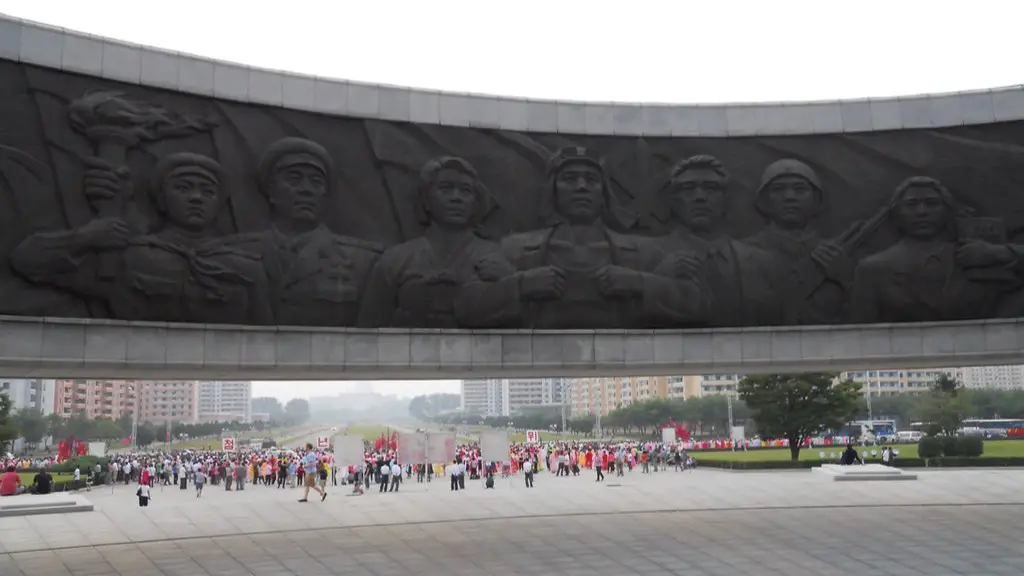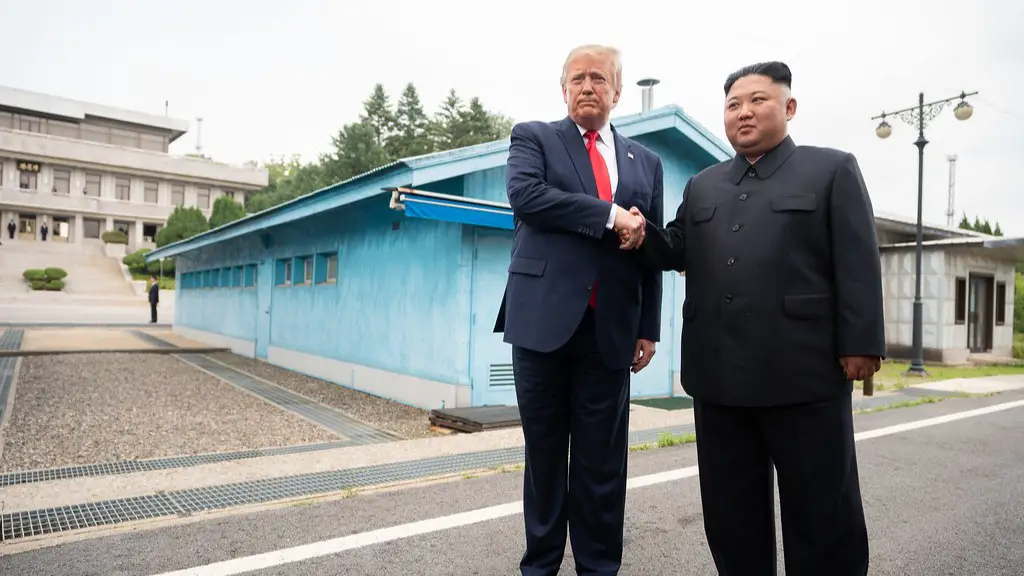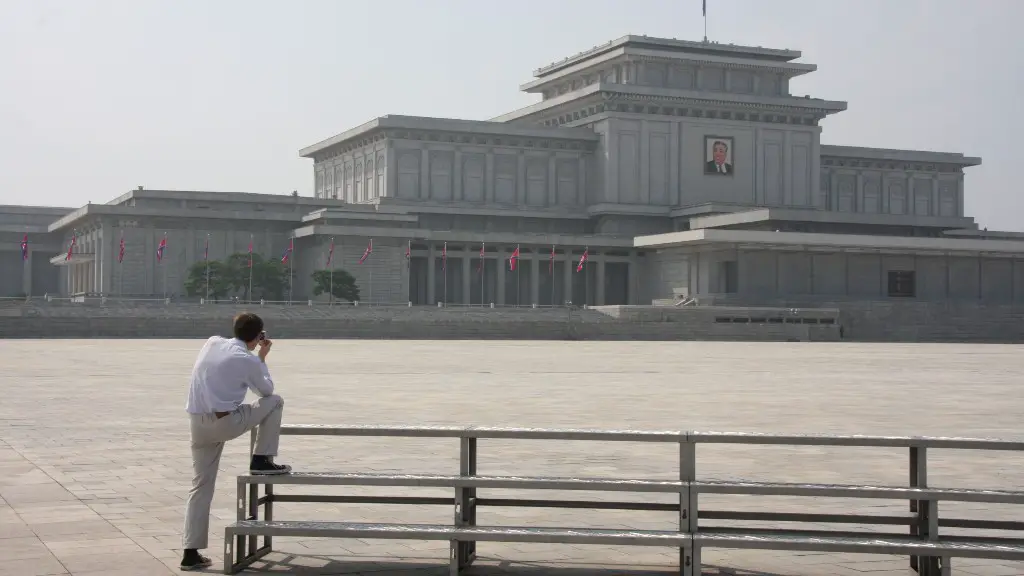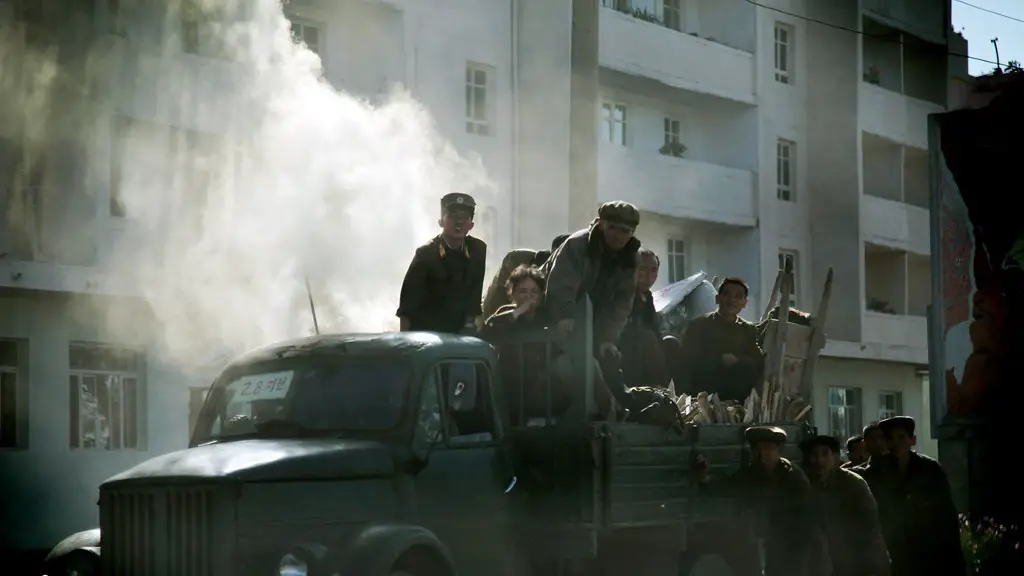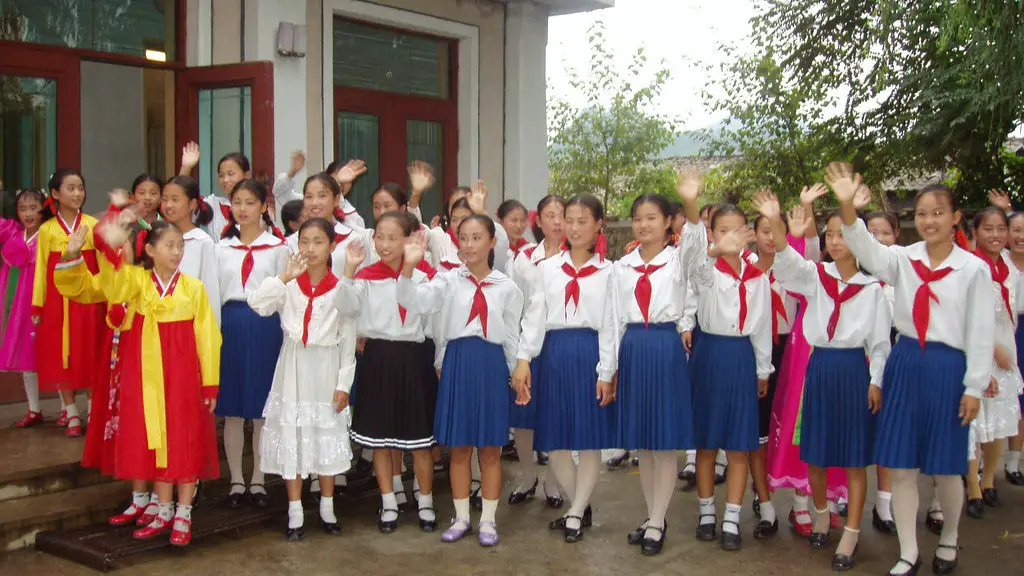The History of Relations between North and South Korea
Since 1945 there have been tensions between North and South Korea. North Korea declared its independence from Japan, following several decades of almost uninterrupted Japanese rule. While North Korea’s government took a distinctly leftist stance and declared it had no desire for reunification, South Korea was significantly more conservative, and pushed for reunification, a desire that North Korea found deeply threatening.
North Korea’s relations with South Korea have been far from simple. After the Korean War from 1950-53, the relationship has fluctuated dramatically, from peaceful cooperation to outright hostility, with every government of both countries, ever since, jockeying for dominance and trying to extract concessions from the other while maintaining a fraught balance.
Since the Korean War, two sides have sought reunification, each pushing a certain ideology to become the dominant force. For North Korea that ideology has been communism, while South Korea has sought to create a more western-style democracy. Often, their governments have found themselves at odds, with occasional agreements brokered, only to lapse into hostile relations again. The two sides have been in a formal state of war since the Korean War and a number of international agreements have been signed and broken in the time since.
The Current Crisis
Currently, the situation between North and South Korea is incredibly tense. North Korea has continued its aggression against the south, and its aggressive foreign policy, threatening other nations with nuclear weapons and ballistic missiles. South Korea, in response, has strengthened their military and taken steps to expand their alliances with other countries in the region. This has further driven a wedge between North and South Korea and increased tensions.
In addition to its aggressive military policy, North Korea has maintained its oppressive domestic policies, restricting basic human rights and heavily controlling the flow of information within its borders. This has only increased mistrust and suspicion towards the North Korean government and put further strain on the already delicate relationship between it and South Korea.
While many attempts at dialogue and detente have been made in the past, few have had much success. The lack of a third-party mediator has meant that most attempts have quickly become bogged down in the disagreement between both sides. Without an honest mediator, it is unlikely that any meaningful progress can be made in resolving the crisis.
Impact of North Korean Aggression
The aggressive stance taken by North Korea has had a significant impact on the region. North Korea’s weapons testing has caused anxiety for the countries in the region, threatening the stability of the Korean Peninsula. The provocative nature of North Korea’s military activity has also caused diplomatic tensions with its neighbours and the US.
As well as the military threat posed by North Korea, its domestic and international policies have had a direct impact on South Korea. The North’s repressive government and human rights abuses, along with its aggression towards the South, have left many South Koreans feeling deeply anxious and mistrustful of the North’s government.
Meanwhile, the sanctions imposed on North Korea by the UN and other international organisations have had a drastic effect on the economic development of both countries, stunting economic growth and leading to high levels of poverty and deprivation in both North and South Korea.
In addition, the tensions between the two countries have even led to military confrontations in the past, some of which have had devastating consequences. These confrontations have led to increased mistrust and instability in the region, placing a greater strain on the already tense relationship between North and South Korea.
What Can Be Done to Resolve the Crisis?
Given the complexity of the situation, there is no easy solution to the North Korea crisis. There are however a number of steps that can be taken to reduce tension and create an environment where meaningful dialogue can take place.
Firstly, the international community needs to take a greater role in the conflict by engaging in direct dialogue with North Korea and by providing humanitarian aid and assistance to the North. The US and other countries should also lift the economic sanctions they have imposed on the North and encourage economic cooperation between the two Koreas.
In addition, South Korea must take consistent steps towards opening communication channels with North Korea and engaging in direct negotiations. This should involve both official and unofficial talks, such as through civil society and non-governmental organisations.
Finally, the world must come together to support the Korean people and their desire for peace, by advocating for peaceful dialogue and working together to end the conflict. This will require deep understanding and empathy to ensure that both sides feel heard and respected. Real progress towards peace will also require both sides to recognise the need for compromise and to overcome disagreements in order to work towards a common goal.
The Role of China
It is also important to acknowledge the role of China in the conflict. As North Korea’s closest ally, China has a responsibility to help diffuse the situation by advocating for a peaceful resolution to the crisis. China has the power to pressure North Korea to negotiate and to enforce both sides to abide by international law. China should also continue to provide economic assistance to North Korea, in order to help the country move towards economic stability and to provide North Koreans with better access to basic human needs.
In addition, China should continue to engage in dialogue with both parties and to take a proactive role in engaging in negotiations. This means pushing both sides to compromise and come to a mutually beneficial solution, one that maintains peace and security in the region.
Finally, China should play a larger role on the global stage, advocating for North Korea’s rights and working to ensure that the country’s policies reflect those of the international community. This means protecting North Korea from outside intervention and preventing any further military escalation, while also ensuring that the North Korean government respects the human rights of its people.
UN Participation
Another key factor in resolving the crisis is the involvement of the UN in the conflict. The UN has a responsibility to ensure that North Korea complies with international law and to play a role in brokering peace talks between the two states. This means providing a neutral site for negotiations, ensuring that the talks are conducted in good faith and working to ensure that all agreements are respected.
The UN should also take steps to ensure that North Korea is held accountable for any violations of international law. This means taking action against the North Korean government and forcing them to comply with international standards. This could include sanctions and other measures, such as the recruitment of international monitors to ensure that North Korean policies and actions do not violate international law.
The UN should also continue to provide humanitarian aid to North Korea, as well as to the people of the Korean peninsula. This means providing food, water, and essential medical supplies to those in need, as well as helping to improve living conditions in North Korea and to create an environment of trust and stability.
Regional Co-Operation
Last but not least, regional co-operation is essential in resolving the crisis. Regional actors such as China, Japan, and Russia have a responsibility to work together in creating a peaceful and secure environment within the region. This means engaging in dialogue and negotiations, providing economic assistance to both North and South Korea, and cultivating an atmosphere of trust and understanding.
In order to ensure a successful outcome, regional actors must remain committed to the process and to continuing to engage in meaningful dialogue and negotiations. This means respecting the sovereignty of both countries, ensuring that all agreements are respected, and working towards a long-term solution that benefits all parties. Doing this will require compromise and compromise on all sides, in order for peace and stability to be maintained.
Ultimately, resolving the North Korean crisis is a complex and difficult process. It will require the involvement of the international community, regional actors, the UN, and the governments of both North and South Korea. By working together and taking consistent steps towards peace and security, it is possible to create an environment where meaningful dialogue and cooperation can take place, allowing for a resolution to the Korean crisis.
